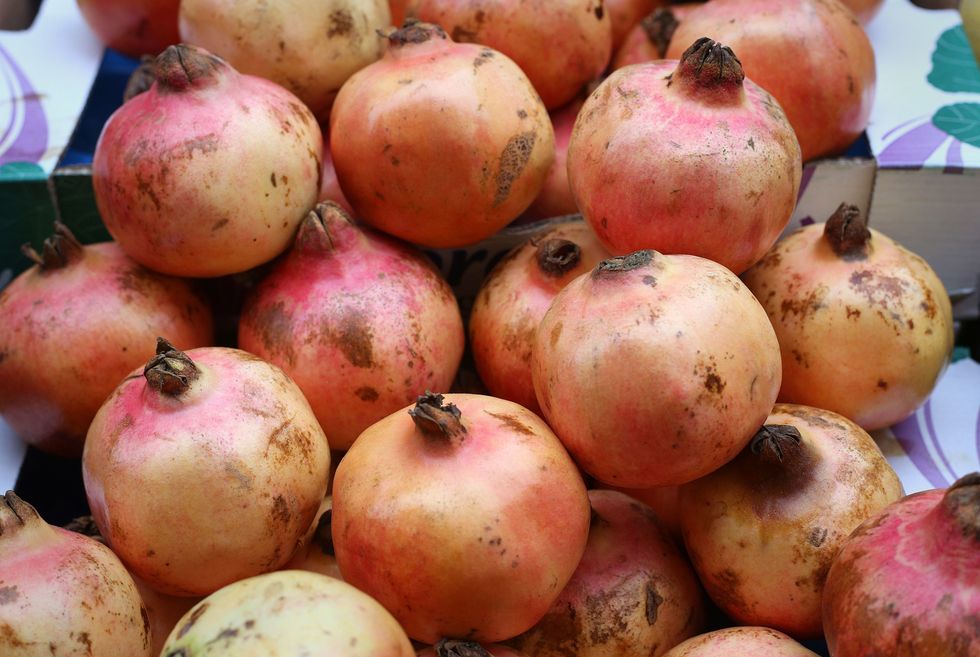Dementia breakthrough as 2p fruit found to improve memory and treat Alzheimer's

Naturally occurring substance in pomegranates improved memory and treated Alzheimer's in a mice study
|Getty Images

- Substance in pomegranates improved memory and treated Alzheimer's
- Researchers now looking to repeat the results in humans
Don't Miss
Most Read
Memory problems can be disquieting as you enter the at-risk age bracket for Alzheimer's disease but a new study has concluded that an ordinary fruit can treat both.
A study on mouse models with Alzheimer's shows that urolithin A, which is a naturally occurring substance in pomegranates, can alleviate memory problems and other damage caused by dementia.
“Even though the study was conducted on mouse models, the prospects are positive. So far, research has shown promising results for the substance in the muscles, and clinical trials on humans are being planned," said Vilhelm Bohr, Affiliate Professor at the Department of Cellular and Molecular Medicine at the University of Copenhagen and study author.
The researchers previously discovered that a specific molecule, nicotinamide riboside (NAD supplement), plays a key role in neurodegenerative diseases such as Alzheimer’s and Parkinson’s, as it actively helps remove damaged mitochondria from the brain.

Urolithin A removes weak mitochondria from the brain just as effectively as NAD supplement
| PA"Many patients with neurodegenerative diseases experience mitochondrial dysfunction, also known as mitophagy. This means that the brain has difficulties removing weak mitochondria, which thus accumulate and affect brain function. If you are able to stimulate the mitophagy process, removing weak mitochondria, you will see some very positive results,” Vilhelm Bohr explains.
The results of the new study show that a substance found in pomegranates, urolithin A, removes weak mitochondria from the brain just as effectively as NAD supplement.
It comes after a former Silicon Valley executive who has spent millions on hacking his own biological clock extolled the benefits of taking urolithin A.
Speaking exclusively to GB News, Dave Asprey said: "When your mitochondria aren’t working well, you age faster. Urolithin A encourages your body to weed out the weak mitochondria and grow new, healthier ones."
The researchers still don’t know how much urolithin A is needed to improve memory and alleviate symptoms of Alzheimer’s.
“We still cannot say anything conclusive about the dosage. But I imagine that it is more than a pomegranate a day. However, the substance is already available in pill form, and we are currently trying to find the right dosage,” Vilhelm Bohr said..
He also hopes the substance can be used for preventive purposes with no significant side effects.
“The advantage of working with a natural substance is the reduced risk of side effects. Several studies so far show that there are no serious side effects of NAD supplementation. Our knowledge of urolithin A is more limited, but as I mentioned, clinical trials with Urolithin A have been effective in muscular disease, and now we need to look at Alzheimers disease. ,” he said.
LATEST DEVELOPMENTS'

The researchers don’t know how much urolithin A is needed to improve memory and alleviate symptoms
|Getty Images
“If we are going to eat something in the future to reduce the risk of Alzheimer’s, which we talk a lot about, we have to make sure there are no significant side effects.”
Editor's take
Any attempts to turn the tide on dementia gets my full-throated support: cases are predicted to triple globally in the coming decades, with 153 million living with brain decline by 2050.
However, it's important to manage expectations. This is a mice study so it's unclear how applicable to human populations it will turn out to be.
More research is therefore needed before specific recommendations can be made.
Also, the whole is greater than the sum of its parts when it comes to stopping brain decline.
In other words, think about your overall dietary approach. Research has found the MIND diet, which combines elements of the Mediterranean diet and the Dietary Approaches to Stop Hypertension (DASH) diet, slows down the processes of ageing that can lead to dementia.
Here is our breakdown of the best components of this dietary plan.
And don't forget to exercise. To stay healthy, the NHS recommends adults should try to be active every day and aim to do at least 150 minutes of physical activity over a week, through a variety of activities.







